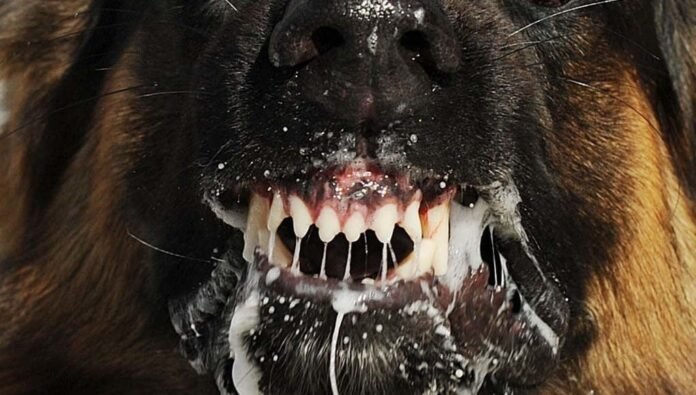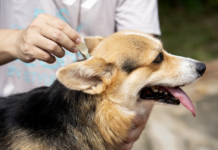Rabies is a viral disease that is fatal to almost all dogs who catch it. With a canine rabies vaccine, pet owners can help keep their dogs from getting infected with the rabies virus.
Rabies is caused by a virus that attacks the central nervous system (CNS). The virus travels along nerves from the site of infection to the brain. Rabies can affect any mammal, including humans. Animals that host and spread viruses like rabies are known as reservoirs for the disease.
Contents
Symptoms of Dog Rabies
The initial symptoms of rabies may come on gradually and be hard to detect. These symptoms include fever, as well as decreases in energy and appetite. After 2-4 days, rabies symptoms tend to progress quickly, including weakness or paralysis of the legs, seizures, difficulty breathing, hypersalivation due to difficulty swallowing, and abnormal behaviour. Behaviour shifts can range from extreme aggression to depression or coma.
Classical rabies has two forms, furious and paralytic. Affected dogs may show signs of either or both conditions. If the angry phase develops, dogs can become aggressive and occasionally delusional. They may seem to hallucinate and attack their surroundings without a trigger.
Causes of Rabies in Dogs
The most common way a dog becomes infected is through a bite from an infected animal, where the virus is transmitted by saliva. Rarely saliva or nerve tissue of an infected animal can contaminate a dog’s open wound or the mucous membranes of the eyes, nose, or mouth, leading to virus transmission without a bite occurring.
How Veterinarians Diagnose Rabies in Dogs
Rabies can’t be diagnosed for sure in a living animal, so it’s important to pay attention to the signs and understand what they mean. If a vet suspects rabies based on the dog’s symptoms, a diagnosis can be made by testing the brain tissue after the dog has died. The brain tissue is examined using “direct fluorescent antibody testing.”
Treatment for Rabies in Dogs
Rabies in dogs can’t be treated, so if the disease is strongly suspected, it’s best to put the dog to sleep humanely.
Recovery and Management of Rabies in Dogs
Rabies is almost always fatal for dogs. Once a dog has been infected and shows signs of the disease, there is no chance of recovery or long-term care. For this reason, it is critical to keep your cat up-to-date on their rabies vaccine to ensure their health and safety should they become exposed to this disease.
Read More: CBD for Your Dog




















